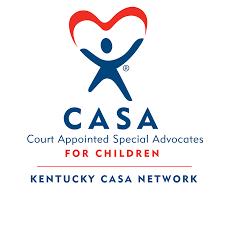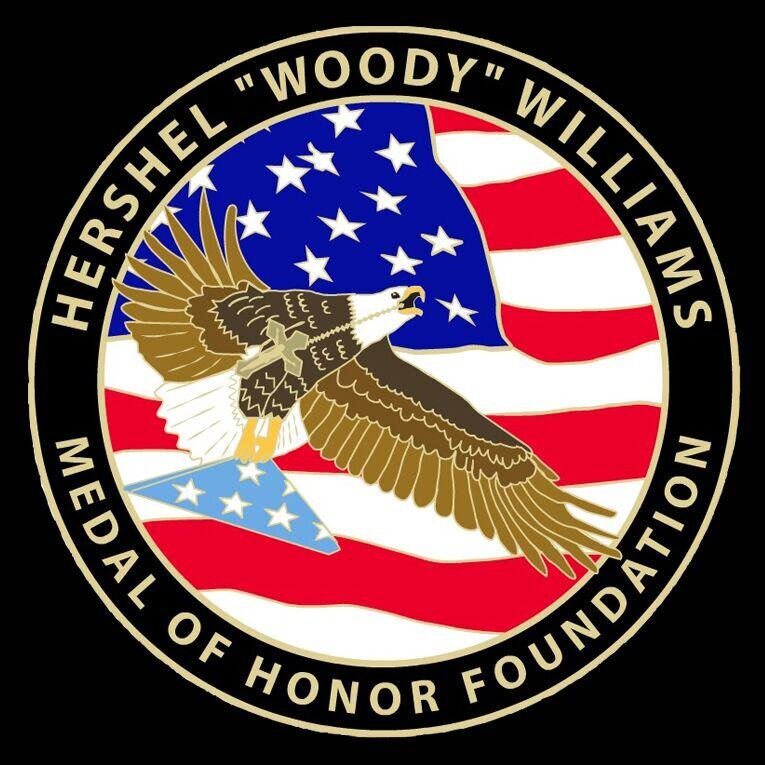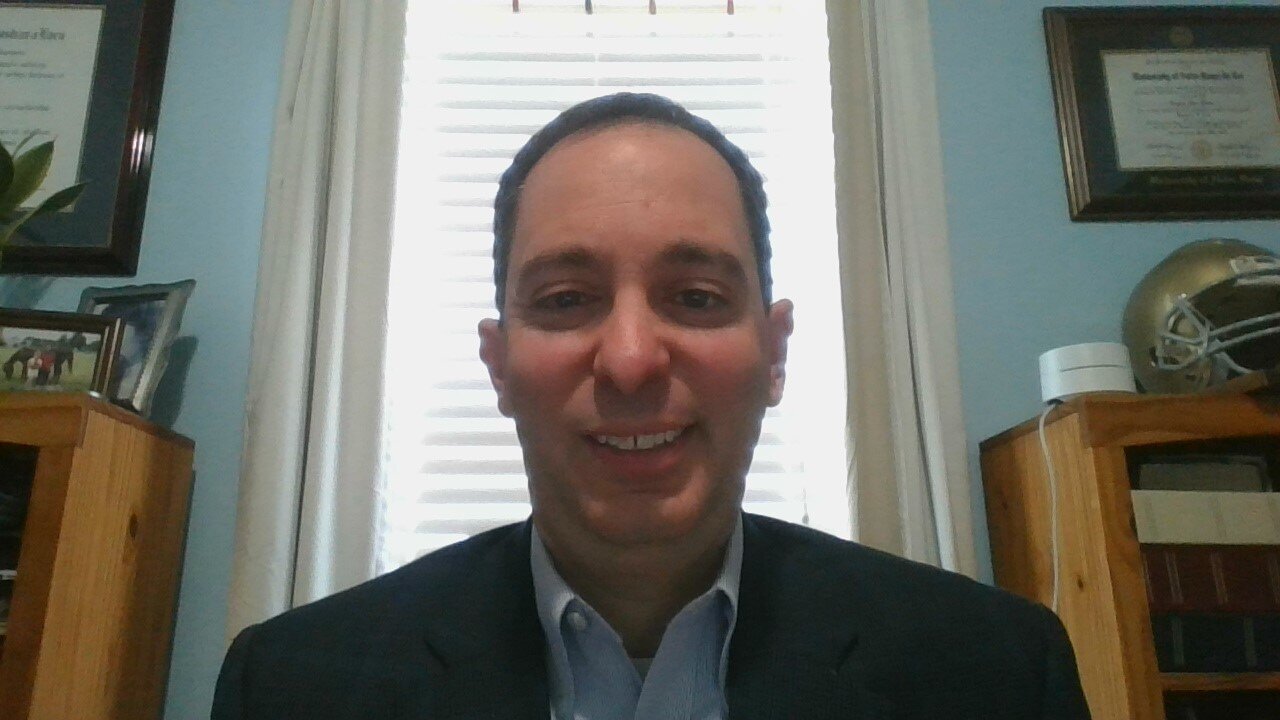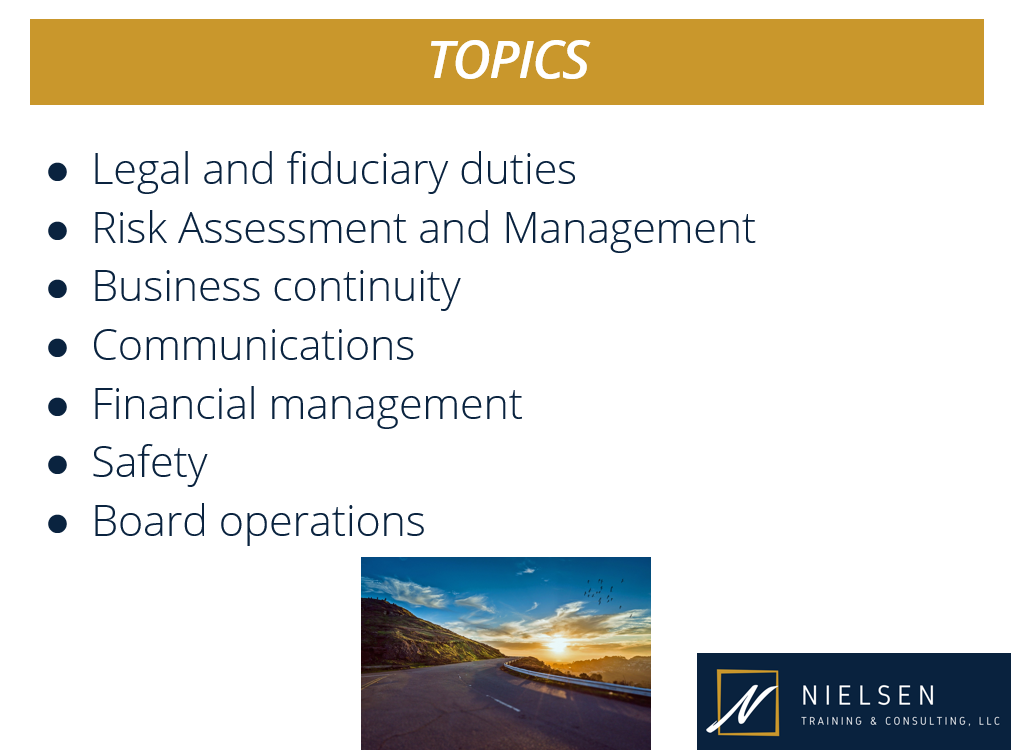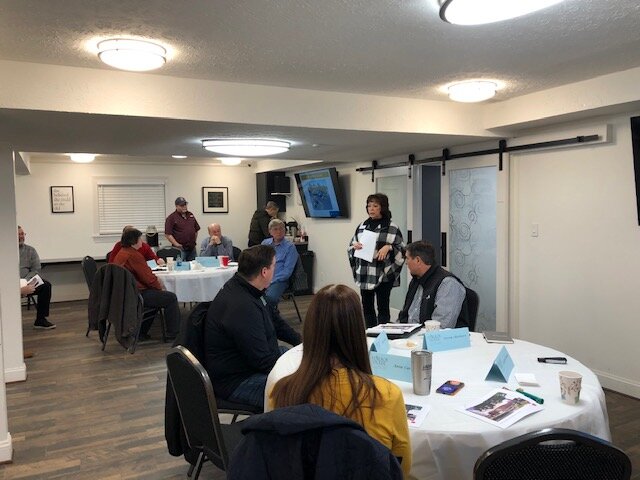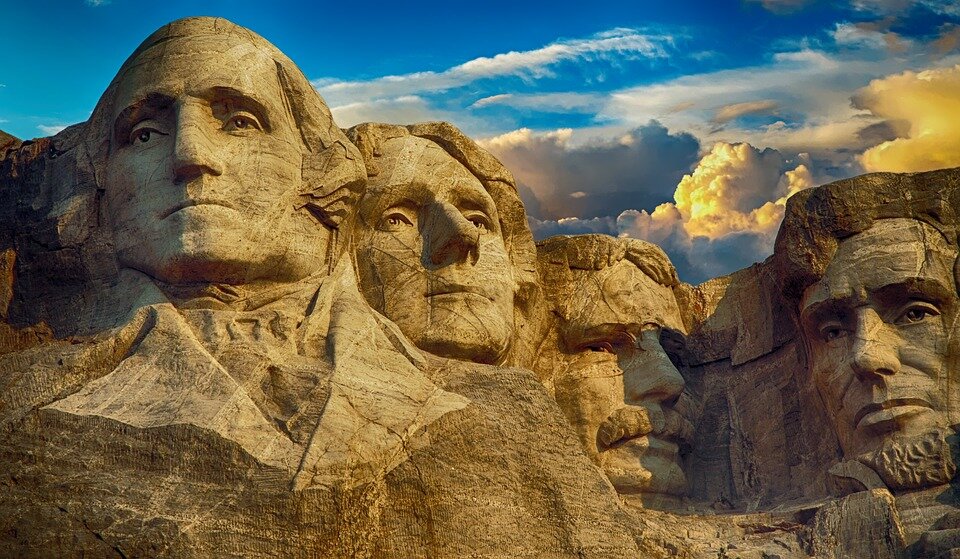
Latest News
Speak Authentically With Your Board About Their Performance
Speaking with your Board about their performance can be a challenging -- and pivotal -- moment for any nonprofit leader. I invite you to join me and Dennis C Miller this Wednesday, June 3 at 1pm for a FREE webinar in which we discuss "How to Speak Authentically With Your Board About Their Performance.
Developing Board Champions
Developing a dynamic and engaged Board is vital to the success of your mission. It doesn’t happen overnight, but is the product of intentionality, engagement, and effort.
Honored to facilitate Board development webinars this week for the leaders of two outstanding organizations — Kentucky CASA Network and Hershel Woody Williams Medal of Honor Foundation.
The Kentucky CASA Network (KCN) is supports a statewide network of local, community-based CASA programs, through which trained volunteers advocate for the best interests of children who have been removed from their families because of abuse or neglect. The KCN aims to support local programs by providing resources, technical assistance, and advocating in their interest.
The Hershel Woody Williams Medal of Honor Foundation encourages, with the assistance of the American public and community leaders, establishing permanent Gold Star Families Memorial Monuments in communities throughout the United States, conducting Gold Star Families Outreach across the country, providing Living Legacy scholarships to eligible Gold Star Children, and advocating for educational benefits for all Gold Star Family members.
Board Champions is a year-round, fully customizable Board development program, designed to partner with you in building a Board team capable of translating bold vision into reality. If you are looking to elevate the performance and effectiveness of your Board, let’s connect!
FREE Webinar: Managing the Virtual Board Meeting
Do you want to improve the effectiveness and productivity of your team's next virtual Board meeting? Join me on April 30 at 1pm for a FREE webinar in partnership with Dennis C Miller entitled
"Managing the Virtual Board Meeting: Board Leadership During a Time of Crisis."
Register below and join the discussion!
Board Leadership in Challenging Times
Highly effective Boards remain informed and engaged throughout the year. However, the need for Board leaders to be appropriately engaged and active is heightened during challenging times. This webinar explores the ways in which nonprofit Boards should respond in times of crisis, such as many are experiencing now with the COVID-19 outbreak.
I recently led a free webinar entitled “Board Leadership in Challenging Times.” I am making the video recording of the webinar available below. If you have questions or would like to discuss ways to deepen the engagement and performance of your Board, let’s connect!
Board Leadership in Challenging Times
Board leadership and engagement is vital in challenging times, and there are tangible steps Boards can and should take. Enjoyed leading a webinar today on Board Leadership in Challenging Times. We discussed risk management, financial assessment, business continuity and communication planning, and tips for fostering Board involvement in challenging times. If this information and webinar would be helpful for your Board, let’s connect and give your Board the tools and support to lead.
Board Orientation Excellence
I recently had the privilege of joining Janeal Ford of Fordable Fundraising for a Facebook Live conversation on developing a Board orientation program for excellence. Take a listen as I talk with Janeal about tangible ways in which you and your Board can develop an orientation program that sets Board members and the Board team up for success.
Board and Executive Leadership: Coronavirus and COVID-19
The integral role of the Board in leading and partnering with the Executive and staff is heightened and magnified in times of crisis and uncertainty. As nonprofits around the country navigate new and rapidly changing realities, Board members must be active and engaged leaders. Boards should partner with the Executive to discuss:
Operational contingencies
Potential shifts in Board meetings
Policy changes to address the wellbeing of staff members and those served by the mission
Status of upcoming events
The article below from Gene Takagi of NEO Law Group highlights many of these issues and provides solid tips for Boards to consider. As we navigate these choppy waters together, we are available to serve as a thought partner, facilitator, or sounding board to discuss the unique needs of your organization.
*NEW* Signature Program: Mission Ambassadors
What if your Board and staff members embraced their role as advocates and ambassadors for the mission? Imagine the enhanced awareness of your mission and impact!
Excited to announce the launch of a NEW Signature Program — Mission Ambassadors. This engaging and highly interactive workshop hones effective speaking techniques while empowering Board and staff members to develop their personal meaningful message and gain skills to serve as excited and effective ambassadors for your mission. Mission Ambassadors can be delivered in a variety of lengths and formats, and is highly customizable for your needs. Click below to discuss bringing Mission Ambassadors to your organization!
Tips for a Successful Board Orientation
Imagine for a moment that two employees begin similar jobs on the same day. One employee receives a book, and instructions to read it in order to learn about the job responsibilities and company. The other employee meets with the CEO and key individuals within the organization who provide information, address questions, and provide a pathway for future conversations. Which employee would you expect to be more effective in their new endeavor? Most would agree that the employee who enjoyed a more personalized experience will be better equipped to thrive. Introducing new members to your nonprofit board team is no different.
Board orientation is an important but overlooked component of the overall effort to develop “Board Champions.” We often spend a lot of time discussing our expectations of board members and where we will look to recruit these leaders, but far less time on how we will ensure that they are put in a position to excel once they join the team. Offering a new board member a comprehensive introduction is essential and invaluable to an organization. A thoughtful approach to nonprofit board orientation provides a thorough understanding of the mission of the nonprofit and individual roles and responsibilities.
Do all board members need an orientation, even the seasoned ones?
Knowing how to be an effective nonprofit board member is a learning experience. No one is born with this gift. It requires an investment of time and effort from the organization, existing board leaders, and the new board member. The benefit to new board members is obvious. However, even the most seasoned board members, who have served on nonprofit boards in the past, need to become familiar with the lay of the land to ensure they understand the objectives of the organization and the role they will play. There is also value in board members sharing a common experience through the orientation process, as it becomes part of the board culture and way of welcoming and introducing members to the team so they might be successful.
What should we include in our nonprofit board orientation?
Effective orientations include:
History of the organization
Organizational structure
Current programs/projects
Strategic direction
Financial overview
Goals and expectations
Housekeeping (e.g., how often does the board meet? When? Where? Committees?)
Any other tips for an effective nonprofit board orientation program?
There is no replacement for in-person communication. Effective orientation for a new board member includes time spent with the CEO, board and staff leaders.
A thoughtful orientation session should also include and highlight the organization’s compelling plans and vision for the future. This is a golden opportunity to inspire the passion and imagination of the new board member, one that will serve to inspire rather than impose commitment. Your board members are ambassadors for the organization – give them the tools to inspire others!
Consider creating a mentoring program that will pair the new board member with an existing, effective board member who can instill confidence, provide insight and share experience. This can be a powerful tool and can go a long way in developing meaningful relationships and cohesion among board members.
Developing a highly effective board doesn’t happen overnight, but is the product of intentionality, engagement, and effort. That’s why I created Board Champions — a customizable board development program designed to partner with you in building a board team capable of translating bold vision into reality. If you’d like to learn more about nonprofit board orientation or other aspects of building and leading a dynamic board, let’s connect!
Harbor House Board Retreat
A Board retreat can serve as an inspiring bridge from the present to the future for a nonprofit, providing an opportunity for the Board and staff team to reflect, reimagine, and prioritize. Honored to facilitate the Board retreat for Harbor House this weekend. The mission of Harbor House is empowering individuals with disabilities and their families to lead fulfilled and productive lives.
If George Washington Was a Nonprofit Leader...
If George Washington had been a nonprofit leader, what type of leader would he have been? This may seem like an odd question, but it is precisely the question that was running through my head as I recently listened to the podcast “Presidential,” produced by the Washington Post. In the episode focused on President Washington, the podcast host and her guests discussed the leadership and legacy of the nation’s first President. I was struck by the similarity of many of the themes discussed to nonprofit leadership. With President’s Day around the corner, I thought I’d highlight a few of these themes.
Flexible Leadership
Washington, who had so famously served as the Commander of the Continental Army, found himself facing a very different leadership challenge as the first President of the United States. The circumstances of the moment and the challenge required different leadership skills -- skills of listening, persuading, and even consoling. Like Washington, highly effective nonprofit leaders demonstrate situational awareness, and flex their leadership style to match the needs of the moment, while remaining true to their core values.
“What is the next stage of good?”
Having led the country through the Revolutionary War period, Washington understood that developing a compelling vision for the new United States was vital. A question he reportedly asked frequently was “What is the next stage of good?” I love this question! I hear nonprofit leaders discussing variations of this question with their Board and staff team at each retreat I facilitate and certainly during every strategic planning process. All good plans proceed from a group’s collective embracing of the “next stage of good” for the organization.
Authentic self awareness
When we envision President Washington, the image that frequently comes to mind is the face on Mount Rushmore. Commanding, determined, and confident. In reality, Washington frequently experienced self-doubt. He was uniquely comfortable speaking about these doubts publicly as he firmly believed people would see this as a strength of his character, not a weakness or flaw. Having served as a nonprofit executive and now in coaching nonprofit leaders, I know how common these doubts are, and how valuable authentic self awareness can be.
Know when to walk away.
For all that George Washington accomplished, perhaps his signature achievement was stepping away from the Presidency at the conclusion of his second term. Had Washington desired, he could have sought a third term and perhaps won. However, he recognized the symbolic and tangible importance of not establishing a monarchy, of walking away in service to a greater good. Similarly, the wise nonprofit leader recognizes the importance of a succession and transition plan, regardless of the stage of their career.
George Washington was certainly not a perfect leader, none of us are. However, he demonstrated many of the same skills and competencies I see reflected so frequently in nonprofit leaders. So, as we celebrate President’s Day next month, don’t be afraid to pause and be kind to yourself with a pat on the back for the leadership you provide to our communities each day!


